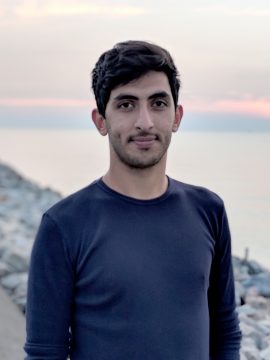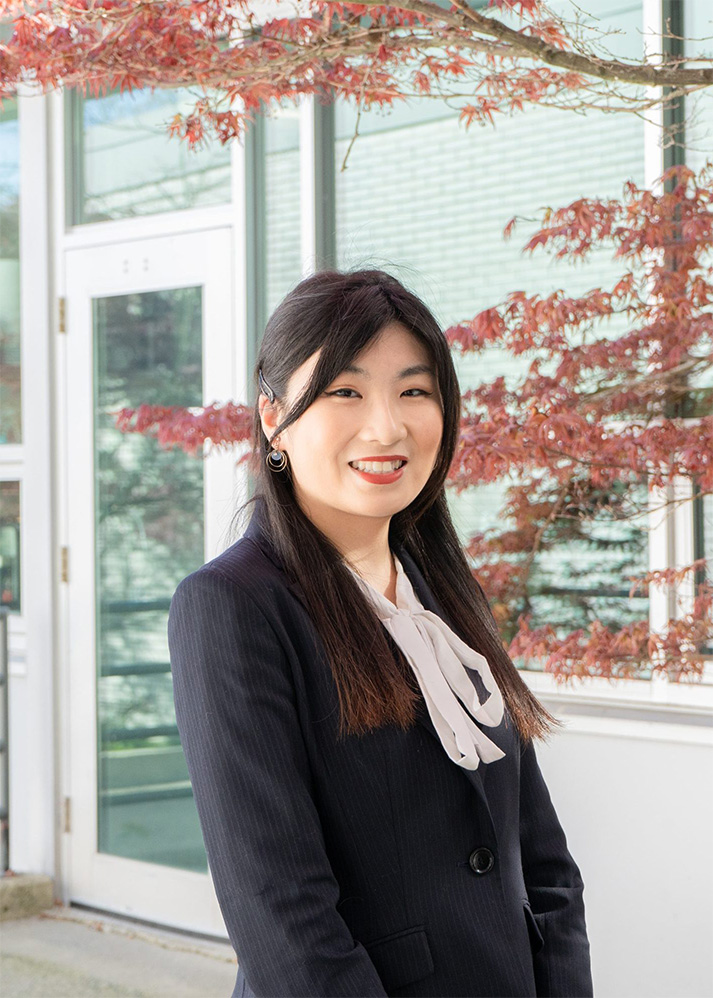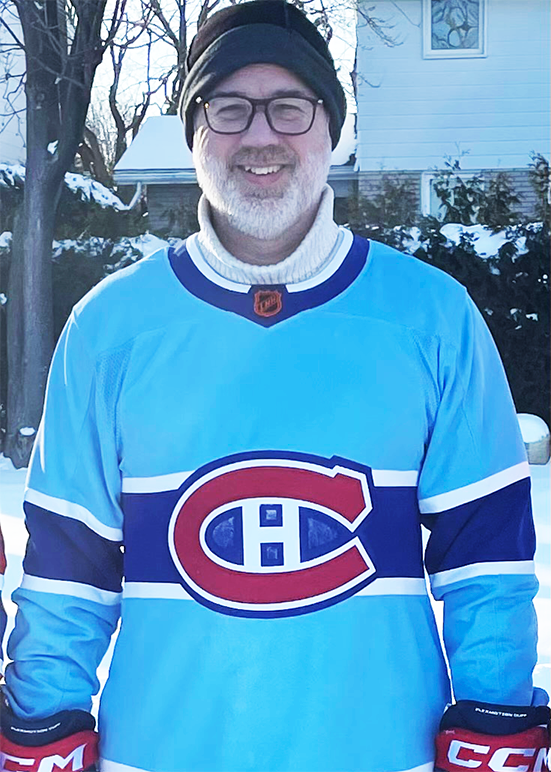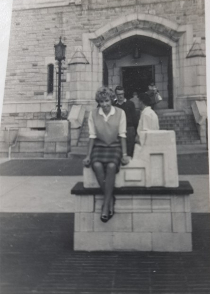Faisal Paktian

Why did you choose your program at UBC and what did you enjoy most about it?
I have always wanted to work for human well-being through sustainable development projects. Sustainable development, for me, is not limited to the economic well-being of humans, but it also encompasses the subject of peace and security as well as the environment. However, to work in this field, I needed to grasp a complete understanding of our world and how everything in it works, and I wanted to do so at a diverse and large university, so I chose to study the political science and geography at best university that I have ever set foot in – UBC.
What I really enjoyed about these programs, and I say this without a doubt, was the quality of teaching. The content of the courses was one thing, but it was also the style of teaching of some professors that impressed me. I never had a class in which students were taught a subject in a way that they felt thought-provoked and speechless at the same time by the end of a lecture, but I did experience and observe this at a course in UBC. That lecture was so impressive that I personally emailed the professor within a few hours telling him how much I appreciated the class. There was something about these programs and the university itself that made me enjoy learning.
What were some of your most meaningful experiences at UBC?
Above all, I would say my encounters with people, mainly other students. I made some really good friends at UBC, some of whom I am still very close to, and whether they know it or not they indirectly influence some of my decisions even today. Seeing the professional progress of my friends and classmates motivates me to be the best version of myself.
What choices did you make at UBC that contributed to your career success / journey?
Setting a clear goal and sticking with it even in tough times. There are always difficult and stressful moments in university, and it is very easy to get distracted by temporary things and consider quitting, but it is important to remember why we are doing all of this – to become the person we want to be in the future. I personally experienced some very intense moments during my undergraduate years, the causes of which ranged from having no leisure time to picking up serious long-term sports-related injuries. It is the unpredictable nature of life, but I could not let any of this affect my plans. Challenging ourselves goes a long way to removing our fears and making us ready to take on any problem in life fearlessly.
What was your first job after graduation and what other jobs did you have before your current position?
I started with a seven months internship at the Geneva Centre for Security Policy about ten days after my UBC graduation ceremony in May 2017. After four months into the internship, I began the Master in Development Studies program at IHEID. Then, in January 2018, I obtained my current position with T-JAG in the GCSP. I am currently both a graduate student and an analyst.
Is your current career path as you originally intended? What challenges did you face in launching your career?
Yes, my current career path is in the field of peace and security so it is aligned with what I originally intended, and since I returned to my hometown, I was lucky enough not to have faced any serious challenges when launching my career other than settling into the new routine and managing my day-time schedule between work and university since both activities take place during business hours on weekdays.
What do you like about your current job and what do you find challenging? How does it relate to your degree?
I like that my current job provides me with the opportunity to work in a team and at the same time be able take on responsibility for some important projects independently. There is a level of trust and respect that I appreciate. Of course, taking on important projects on behalf of the team comes with its own challenges, but I believe that all of this contributes to my personal and professional growth. Since my job is in the field of peace and security, it is closely related to my studies.
From your experience, what has been the value of having an Arts degree?
An Arts degree confirms our critical thinking abilities. During our studies, we learn to look at global issues from multiple perspectives to build a complete picture of things before drawing our conclusions and finding unique solutions to problems by bringing together ideas from multiple disciplines. Coupled with the written abilities that we adopt during our studies, we are at the core of this kind of intellectual communication and engagement around the world.
What advice would you give to students and alumni interested in breaking into your industry?
The best professional advice I was given as well: “find your niche.” Hundreds of people graduate from every program every year. They all look for the same jobs with the same qualifications. What sets you apart immediately after graduation is not how much you market yourself, but how you market yourself. What is it about you specifically that would benefit the place you want to work in? Everyone brings their own unique addition to a workplace.
What advice would you give to your first-year self?
I would advise myself to build my professional network in a specific domain as soon as possible and take time to meet with people in person. We hear about relevant opportunities much more through people that we know rather than if we search for things on our own.
Faisal Paktian



Why did you choose your program at UBC and what did you enjoy most about it?
I have always wanted to work for human well-being through sustainable development projects. Sustainable development, for me, is not limited to the economic well-being of humans, but it also encompasses the subject of peace and security as well as the environment. However, to work in this field, I needed to grasp a complete understanding of our world and how everything in it works, and I wanted to do so at a diverse and large university, so I chose to study the political science and geography at best university that I have ever set foot in – UBC.
What I really enjoyed about these programs, and I say this without a doubt, was the quality of teaching. The content of the courses was one thing, but it was also the style of teaching of some professors that impressed me. I never had a class in which students were taught a subject in a way that they felt thought-provoked and speechless at the same time by the end of a lecture, but I did experience and observe this at a course in UBC. That lecture was so impressive that I personally emailed the professor within a few hours telling him how much I appreciated the class. There was something about these programs and the university itself that made me enjoy learning.
What were some of your most meaningful experiences at UBC?
Above all, I would say my encounters with people, mainly other students. I made some really good friends at UBC, some of whom I am still very close to, and whether they know it or not they indirectly influence some of my decisions even today. Seeing the professional progress of my friends and classmates motivates me to be the best version of myself.
What choices did you make at UBC that contributed to your career success / journey?
Setting a clear goal and sticking with it even in tough times. There are always difficult and stressful moments in university, and it is very easy to get distracted by temporary things and consider quitting, but it is important to remember why we are doing all of this – to become the person we want to be in the future. I personally experienced some very intense moments during my undergraduate years, the causes of which ranged from having no leisure time to picking up serious long-term sports-related injuries. It is the unpredictable nature of life, but I could not let any of this affect my plans. Challenging ourselves goes a long way to removing our fears and making us ready to take on any problem in life fearlessly.
What was your first job after graduation and what other jobs did you have before your current position?
I started with a seven months internship at the Geneva Centre for Security Policy about ten days after my UBC graduation ceremony in May 2017. After four months into the internship, I began the Master in Development Studies program at IHEID. Then, in January 2018, I obtained my current position with T-JAG in the GCSP. I am currently both a graduate student and an analyst.
Is your current career path as you originally intended? What challenges did you face in launching your career?
Yes, my current career path is in the field of peace and security so it is aligned with what I originally intended, and since I returned to my hometown, I was lucky enough not to have faced any serious challenges when launching my career other than settling into the new routine and managing my day-time schedule between work and university since both activities take place during business hours on weekdays.
What do you like about your current job and what do you find challenging? How does it relate to your degree?
I like that my current job provides me with the opportunity to work in a team and at the same time be able take on responsibility for some important projects independently. There is a level of trust and respect that I appreciate. Of course, taking on important projects on behalf of the team comes with its own challenges, but I believe that all of this contributes to my personal and professional growth. Since my job is in the field of peace and security, it is closely related to my studies.
From your experience, what has been the value of having an Arts degree?
An Arts degree confirms our critical thinking abilities. During our studies, we learn to look at global issues from multiple perspectives to build a complete picture of things before drawing our conclusions and finding unique solutions to problems by bringing together ideas from multiple disciplines. Coupled with the written abilities that we adopt during our studies, we are at the core of this kind of intellectual communication and engagement around the world.
What advice would you give to students and alumni interested in breaking into your industry?
The best professional advice I was given as well: “find your niche.” Hundreds of people graduate from every program every year. They all look for the same jobs with the same qualifications. What sets you apart immediately after graduation is not how much you market yourself, but how you market yourself. What is it about you specifically that would benefit the place you want to work in? Everyone brings their own unique addition to a workplace.
What advice would you give to your first-year self?
I would advise myself to build my professional network in a specific domain as soon as possible and take time to meet with people in person. We hear about relevant opportunities much more through people that we know rather than if we search for things on our own.



